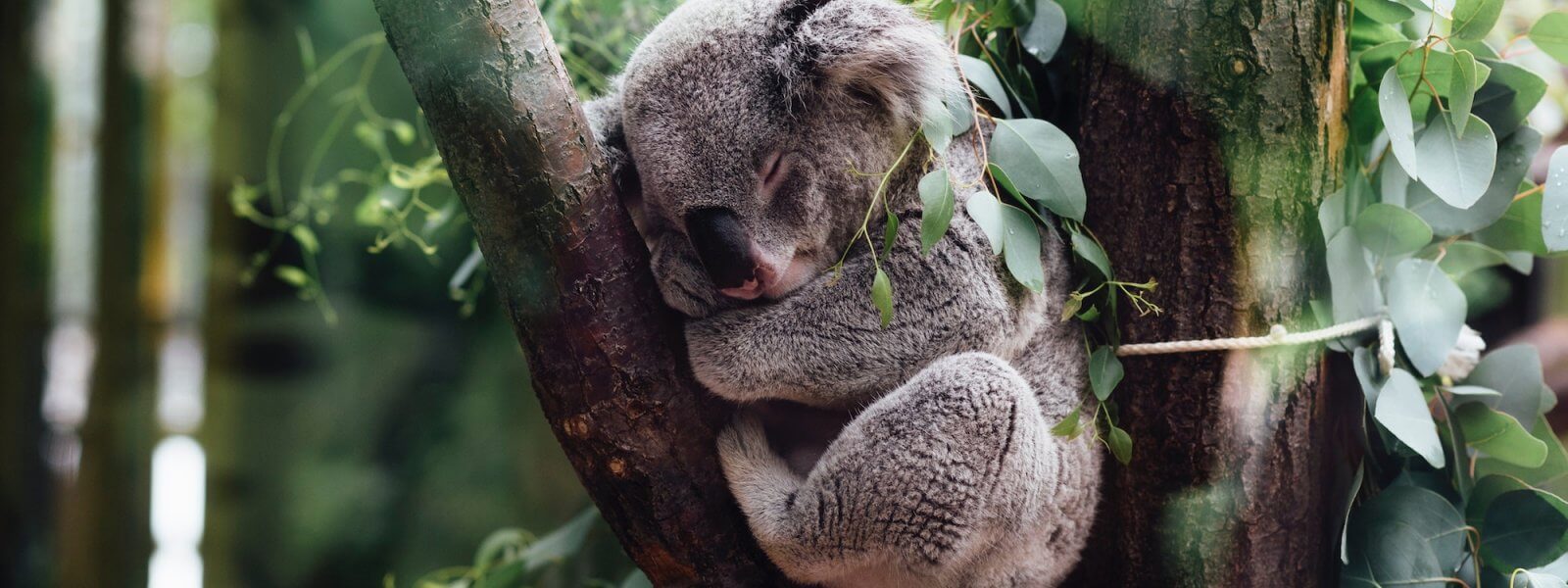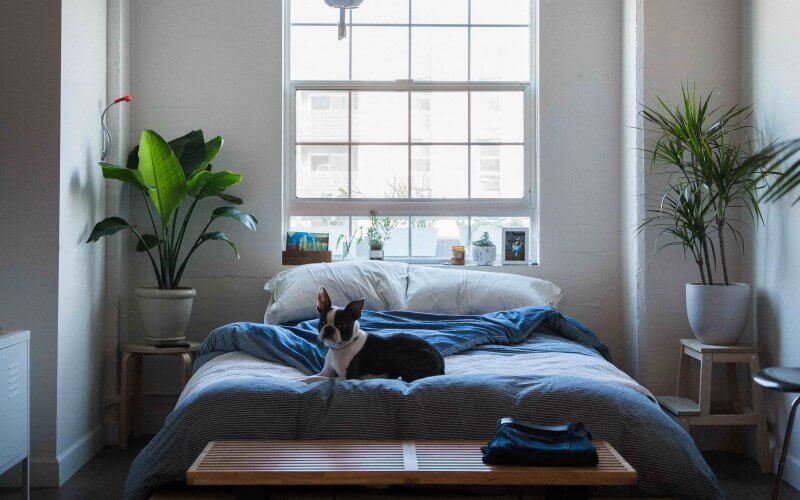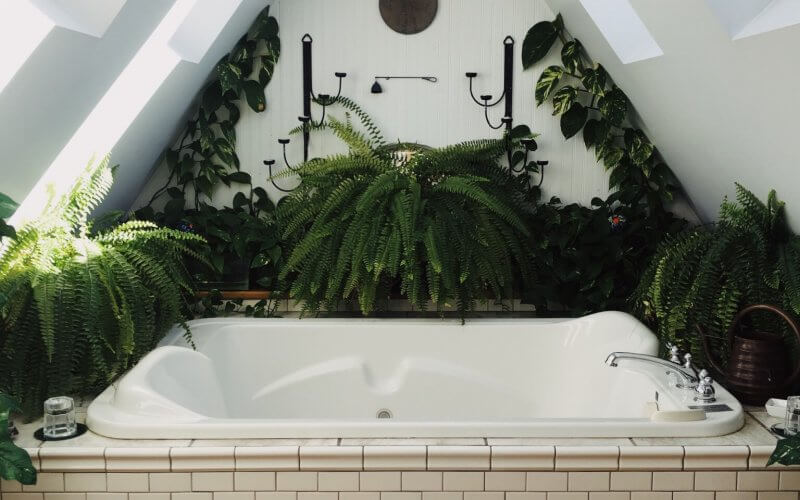11 natural ways to fall asleep

What natural ways to fall asleep are there? Especially ways that actually work! We all want to know the answer. And it’s easier said than done- many of us want to be able to fall asleep faster using natural methods, without external or pharmaceutical help.
It’s important to put this all into context, in the US alone, around 50- 70 million adults are suffering from a sleep disorder (the CDC have labeled sleep deprivation a public health epidemic). Prescriptions for non-benzodiazepine sedatives have increased 30 times over, a figure that brings with it a panoply of other problems.
Being able to fall asleep naturally and quickly takes some work. To make it easier for you, here are 11 natural ways to fall asleep, to help you drift off to sleep more easily.
11 natural ways to fall asleep
1. Eat your dinner (but not too late)
If you’re looking for natural ways to fall asleep, the first place to start is by looking at what’s on your dinner plate. What you eat in the evening has an effect on your sleep – and how easy you find it to fall asleep naturally. That’s right- nutrition and sleep are closely linked. You’ve probably already heard a lot of “common sense” advice on the subject, but it can be hard to sort the stuff that works from the hocus-pocus. Here’s a quick recap:
When it comes to dinner, what you eat and when you eat it have a big influence on your sleep’s length and composition (the different phases of sleep). If you don’t eat enough, your sleep will pay the price, you may even wake up hungry in the middle of the night.
But be careful, digestion can also upset your falling asleep. It increases your internal temperature- especially if your dinner was heavy or too protein-heavy, and your body needs to lower its temperature to fall asleep naturally.

Golden rules for a sleep-friendly dinner (as recommended by the INSV):
- Prepare a light but substantial meal (the third of your 3 daily meals).
- Choose ingredients that are easy to digest.
- Favor glucides (particularly slow sugars) over lipids.
- Eat 2-3 hours before bed (so that you’ll have time to digest beforehand).
- Sugars, proteins, and their effects
Why not try adapting your diet to encourage the sleep-friendly results you’re looking for? For instance, we know that sugars encourage sleep onset while proteins wake you up.
So try to avoid eating red meat in the evening. While if you ever start to feel sleepy behind the wheel, it’s best to avoid sugar at the next rest stop (that goes for putting it in your coffee as well as sugar snacks).
2. Avoid stimulants at the end of the day
We all pretty much know that coffee can stop certain people sleeping and that sensitivity to caffeine changes from person to person, but what a lot of people don’t know is that coffee continues to affect our sleep quality once we’re asleep.
When it comes to natural ways to fall asleep, avoiding caffeine under any circumstances is kind of a no-brainer. The same goes for other stimulants- theine and caffeine are the same molecules. Why not have an herbal infusion instead? If forgoing your cup of joe seems unrealistic (and hey, I hear you) bear in mind that caffeine stays ‘active’ in the body for 5-6 hours, so try to stop drinking coffee 5 hours before bedtime. What’s more the effects of caffeine are cumulative, so limiting yourself to 3 cups a day is recommended. Oh, and forget about nicotine and vitamin C in the evening too.
3. No sport before bed
Sport and its benefits on sleep are numerous and well-known. People often say that they feel “good tired” because of a sport. All that’s well and good, but take it easy! Working out late at night can disturb your ability to fall asleep. Which is often the case depending on our work schedule, training sessions, competitions.
Sport wakes you up for 2 reasons:
- It raises your internal temperature (why we sweat when working out) and this can wake you up. As I mentioned earlier, your body needs to cool down for you to fall asleep naturally.
It adds stress (positive)/ mental stimulation for you to perform better.
In order to fall asleep more easily, you need to eliminate these 2 factors. - Exercising during the day is great, just keep an eye on the time- avoid exercising in the 2 hours before you go to bed. A 2005 study showed that exercising 4-8 hours before bedtime had the most positive effects on sleep.
4. Let’s talk about sex (baby)
Avoid stimulants, limit physical activity…. where does that leave our sex lives?! Well, good news, sexual activity has positive effects on our ability to fall asleep, for both men and women. Yes sex is one of our great, natural ways to fall asleep!
What’s more, the sensations of pleasure and well-being that prevail after having had sex are perfect ways to let go of your stress and worries, preparing you to fall asleep naturally and easily. All this can be explained by having a look at the hormones produced by the body at this moment, hormones that encourage falling asleep:
- Oxytocin- a hormone that brings a sense of calm and well-being
- Endorphins (well-known to any fitness fans reading)- a source of well-being that encourages sensations of pleasure
- Serotonin- for a long time considered the sleep hormone. While we now know this isn’t really the case, serotonin remains very involved in the falling asleep process. It’s a precursor to melatonin- the night hormone that also helps you to fall asleep.
5. Making a sleep-friendly environment
Sleeping on a pile of rocks while your next door neighbors have an all-night rager? Not ideal. Where we sleep has a big impact on how we sleep. If you want to fall to sleep quickly and naturally, your bedroom should be as sleep-friendly as possible.
Too noisy, too bright, too hot- all this has a negative impact on both your ability to fall asleep naturally and the quality of your sleep during the night.
In short, limit the light and noise in your room by closing the curtains, windows, and doors in your bedroom. Unplug electronic devices that can emit light during the night. Keep the room at 19°C (66°F) or a little less. Last but not least, make sure you’re as comfortable as possible once you’re in bed – a good mattress and pillow are also key to falling asleep success.
If you share your bed with a snorer, falling asleep can feel like a race, you desperately want to fall asleep before them to not have to consciously listen to their noise pollution. Not a bad tactic but falling asleep before them isn’t always that easy. Maybe take a look at longer-term solutions, or invest in earplugs.

6. Sleep train-spotting
In order to fall asleep quickly, there’s nothing better than going to bed at the right time. In fact, if you’re looking for natural ways to fall asleep, try to give yourself the best shot by finding the right time to do it. But when is the right time? Just like for your body and your biological clock, it’s a question of cycles. In this case, your sleep cycle which lasts about 90 minutes.
The right time is approximately every 90 minutes when the sleep train rolls into your station. If you’re ready to hop on board it’s the perfect time to start your night and to fall asleep.
How can you spot a sleep train? Listen to your body, if you feel the tell-tale signs of sleepiness, it means the train’s on its way. Let it pass and you’ll regain a little energy, until the next sleep train rolls in 90 minutes later. After a few days, you’ll have a good idea of your sleep train timetable and be able to organize your evening to make sure you’re in bed at the right time.
It’s worth mentioning that sleep trains also run during the day, but because your body hasn’t accumulated enough time awake, it doesn’t want to sleep. This cyclical sleep rhythm is known as ultradian in chronobiology, which means it’s faster than the circadian rhythm (which is about 24 hours long).
7. Beware of blue light!
It makes sense that when looking for natural ways to fall asleep, you need to look at your use of artificial light. It seems like everyone’s talking about blue light these days. Which isn’t all that surprising considering all the LED screens around. As you know, screens are more and more present in our daily lives, a lot of us finish the day by scrolling through our smartphones. The problem is that these little screens emit a lot of blue light.
Blue light stimulates our biological clock and inhibits the natural secretion of melatonin, the sleep hormone.
As a consequence, the body registers that it must delay sleep time without us even realizing. It’s not a great way to start the night. What’s more, the use of a smartphone generally activates your brain’s wakefulness systems.
Looking for natural ways to fall asleep easily? Try avoiding screens in the 30 minutes (minimum) leading up to bedtime.
8. Turn off your wakefulness systems
Wake and sleep states are directly interconnected. This is proved, from a physiological point of view, in the brain.
On one hand, you have GABAergic neurons, charged to induce sleep. On the other, you find the neurons responsible for wakefulness (like histaminergic neurons and orexin, among others). So sleep and wakefulness neurons are attached to one another, each with the capacity to inhibit the other.
Imagine sleep and wakefulness as a set of scales, where one side weighs more than the other. This balance is determined by the body. It depends on how long we’ve been awake for (via the accumulation of adenosine) and the time of day according to our biological clock (the headquarters of which are found in the suprachiasmatic nucleus, at the base of the brain).
To be fair, it’s a pretty one-sided battle- we have one sleep system fighting against 6 wakefulness systems. So it’s up to you to arm yourself and be ready to fall asleep naturally or quickly when the time comes.
In short, stimulation= reinforced wakefulness
If you stimulate one of your wakefulness systems, you are helping swing the balance to the wrong side come bedtime. Which isn’t great if you’re planning on falling asleep quickly.
Since your body doesn’t have an off switch, you’ll just have to wait until the body has eliminated the incriminating neurotransmitter for its effects to pass.
Trust me, it’s less complicated than it all sounds. Let’s put it into context with a common-case scenario:
Playing your favorite video game before going to bed produced dopamine, the pleasure neuromodulator associated with the body’s reward system. So yes, you take pleasure and want to play. But in doing so you activate your wakefulness systems. Which isn’t ideal if your goal is to fall asleep quickly.
The same applies to those page-turners where you just can’t wait to find out the end.
9. Put a bed-time ritual into place
If you want to deactivate your wakefulness systems and fall asleep naturally and more quickly once you’re in bed, a bedtime ritual is recommended. It’s the same logic that new parents put into place for small children.

For children, creating quiet time before bed by reading a story or singing a lullaby helps to deactivate their wakefulness systems. What’s more, the soon-to-be-sleeper is on familiar ground, they benefit from mental conditioning that incites them to prepare for sleep by letting go.
The ritual in itself doesn’t need to be complicated, so long as it respects the principles mentioned above. Reading from an e-reader or book is ideal, but meditation practice can also work. It’s your choice.
10. Sticking to regular sleep schedules
If the sleep train follows an ultradian rhythm, our biological clock is set to circadian rhythm (24 hours approx). And, as an experienced sleeper you’ve probably noticed, the wake-sleep rhythm follows the same rule. Even if our biological clock isn’t the only factor to take into account in our sleep needs, it’s an important one.
What’s more, it’s hard to change the time on our clocks, they prefer regularity. And so, by maintaining regular sleeping and waking times, you can get to sleep more easily. Just jump on the same sleep train every night.
Take the following story for example- every year, just before exams start, there are lots of articles online and in newspapers about how to sleep well before exams. And every year, there are some students who try to go to bed earlier, a lot earlier than they usually do. The problem is that for their biological clock, being in bed at 9pm instead of 11.30 makes no sense! So these students can’t fall asleep, stress out and can experience insomnia.
For the good of our biological clocks, our sleep habits should be adapted little by little, or just stick to our regular sleep times.
11. To nap or not to nap?
Naps have several proven benefits. They’re a great little energy boost during the day for example. Sleeping, even for a short amount of time, allows your body to lower what’s known as ’sleep pressure’, a consequence of the accumulated wakefulness I mentioned earlier. This sleep pressure works via an accumulation of adenosine in the body (which in turn is inhibited by caffeine).
So, to make it easier to fall asleep at night, insomniacs are advised to avoid napping during the day. If not once night comes, their need to sleep isn’t strong enough.
If you’re not strictly speaking an insomniac, a nap may help you get to sleep. A short nap during the day is a good way to handle stress, as a recent study in France showed. Stress management is the key to finding natural ways to fall asleep. If you’re more relaxed in the evening, you’ll be able to fall asleep naturally.
Natural ways to fall asleep: Dreem
If you’ve read this far then you now know how to better organize your (end of) day in order to fall asleep more easily and of course naturally.
But if your problem with falling asleep and staying asleep is persistent no matter what you try, Dreem may be able to help you. We’re constantly developing natural ways to fall asleep. Our program of exercises and advice teach you how to sleep again, addressing the thinking and actions that can contribute to the cycle of bad sleep. A lot of users are using Dreem’s program as one of their natural ways to fall asleep and improve their sleep.
Discover your sleeper profile with this sleep test
Start



